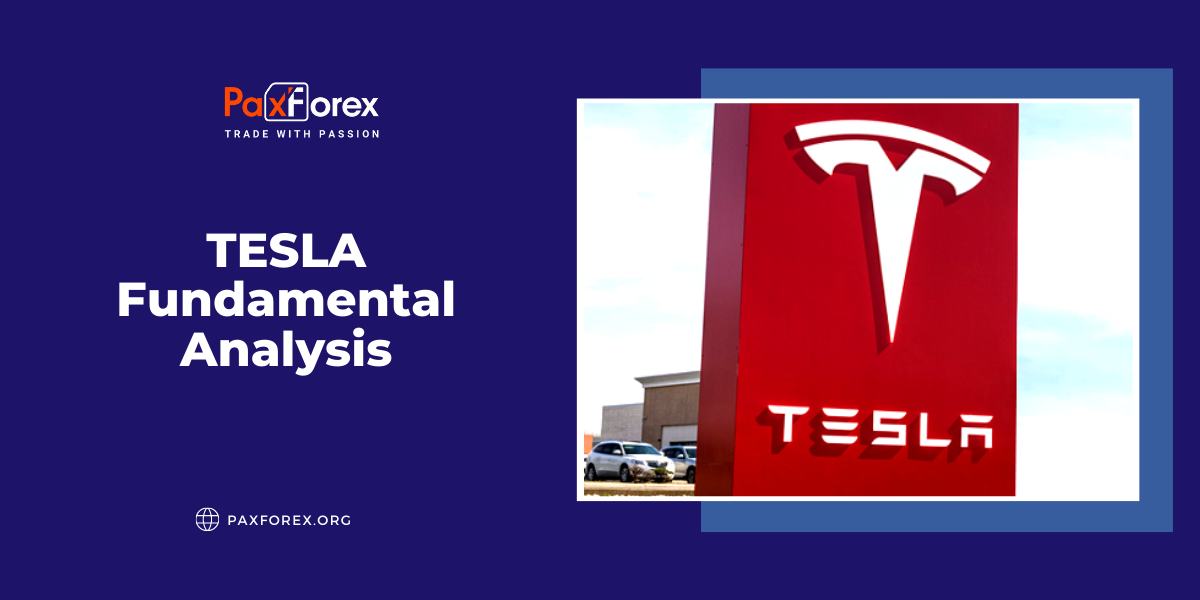
Source: PaxForex Premium Analytics Portal, Fundamental Insight
Tesla, a pioneer in electric vehicle manufacturing, is exploring the possibility of setting up a lithium hydroxide processing plant for batteries on the Gulf Coast in Texas or Louisiana, according to a late August filing for Texas property tax incentives.
Like other electric car makers, Tesla's supply chain depends on lithium - whose price has risen sharply due to limited supply - because it is used to make the lithium-ion batteries that power electric cars. Tesla also uses these batteries in its energy storage devices.
Here's what investors should know.
In its application for Texas property tax relief, here's how Tesla describes the proposed facility in Robstown, Nueces County, which is about 16 miles west of Corpus Christi:
Tesla, Inc. is evaluating an opportunity to establish a battery-grade lithium hydroxide recycling facility, the first of its kind in North America, as well as facilities to support other recycling, cleaning, and production of battery materials and ancillary manufacturing operations in support of Tesla's sustainable product line.
Tesla will recycle raw ore materials to a condition suitable for battery production. The process Tesla will use is innovative and designed to consume fewer hazardous reagents and create usable byproducts compared to the traditional process.
The final product, battery-grade lithium hydroxide, will be packaged and shipped by road and rail to Tesla's various battery manufacturing facilities, supporting the necessary supply chain for large-scale batteries and batteries for electric vehicles.
Tesla estimates the project will create 162 jobs. If it chooses the Robstown site, the company says construction could begin as early as the fourth quarter of 2022, with commercial operation expected to begin by the fourth quarter of 2024.
As is typical for large companies considering building a significant new facility, Tesla is seeking tax breaks in U.S. states.
In its Texas filing, the company said the lithium "project could be located anywhere there is access to a shipping channel on the Gulf Coast," and that it is also considering building in Louisiana.
The company specified that the final product, battery-grade lithium hydroxide, would be "delivered by road and rail to Tesla's various battery manufacturing facilities," so it can be concluded that the Gulf Coast shipping channel is likely needed to deliver the raw material.
In the U.S., Tesla currently produces batteries for its electric cars and energy storage units at the Gigafactory in Nevada, which it runs with partner Panasonic. The company also plans to produce batteries at its new Texas Gigafactory, which is near the Austin metropolitan area.
We can't know which state will give Tesla the most attractive tax breaks. But all things being equal, Texas seems to be the front-runner since the company already operates in the Lone Star State. Tesla moved its global headquarters from California to Austin last year and is currently ramping up production of electric cars at Gigafactory Texas.
A possible site for Tesla's lithium plant in Robstown is less than 20 miles from the Port of Corpus Christi and less than 200 miles by car from the existing plant in Austin. Any site in Louisiana that is close to one of the seaports would be much farther from Tesla's current Texas facilities, according to my review at worldportsource.com. So unless the Pelican State's economic package surpasses anything Texas has to offer, it seems unlikely that it would be home to a Tesla lithium plant.
Tesla is also sure to evaluate weather factors since hurricanes are not uncommon on the U.S. Gulf Coast.
At Battery Day in the fall of 2020, Tesla CEO Elon Musk announced that the company had obtained rights to 10,000 acres of land in Nevada, where it plans to mine lithium from clay deposits using a proprietary process it has developed.
Tesla has not revealed what kind of lithium raw material it plans to use at the lithium hydroxide plant for batteries it is considering building. The company may have developed a clay mining technology, though this is unlikely. No company produces lithium from clay on an industrial scale. (Lithium Americas is close to the commercialization stage of its lithium clay mining project in Nevada, but that project keeps getting delayed because of lawsuits from environmentalists and Native Americans.)
Having Tesla's own source of lithium for its batteries would be a positive thing for it and its investors. It would give it better control of the supply chain and reduce the likelihood that its business would suffer from a global shortage of this crucial battery material. Along with the benefit of availability, Tesla could benefit from the cost, at least eventually.
As long as the price is above 298.00, follow the recommendations below:
- Time frame: D1
- Recommendation: long position
- Entry point: 302.79
- Take Profit 1: 308.00
- Take Profit 2: 315.00
Alternative scenario:
If the 298.00 level is broken-down, follow the recommendations below:
- Time frame: D1
- Recommendation: short position
- Entry point: 298.00
- Take Profit 1: 290.00
- Take Profit 2: 285.00













